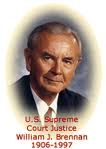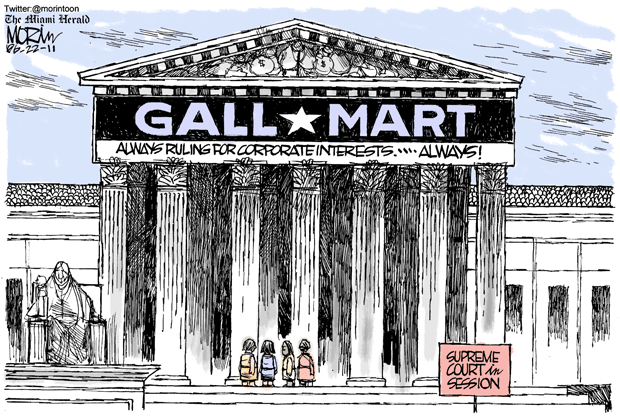This is your morning Open Thread. Pour your favorite beverage and review the past and comment on the future.
Find the past “On This Day in History” here.
Click on images to enlarge.
June 26 is the 177th day of the year (178th in leap years) in the Gregorian calendar. There are 188 days remaining until the end of the year.
On this day in 1959, St. Lawrence Seaway opened.
In a ceremony presided over by U.S. President Dwight D. Eisenhower and Queen Elizabeth II, the St. Lawrence Seaway is officially opened, creating a navigational channel from the Atlantic Ocean to all the Great Lakes. The seaway, made up of a system of canals, locks, and dredged waterways, extends a distance of nearly 2,500 miles, from the Atlantic Ocean through the Gulf of St. Lawrence to Duluth, Minnesota, on Lake Superior.
The Saint Lawrence Seaway was preceded by a number of other canals. In 1871, locks on the Saint Lawrence allowed transit of vessels 186 ft (57 m) long, 44 ft 6 in (13.56 m) wide, and 9 ft (2.7 m) deep. The Welland Canal at that time allowed transit of vessels 142 ft (43 m) long, 26 ft (7.9 m) wide, and 10 ft (3.0 m) deep, but was generally too small to allow passage of larger ocean-going ships.
The first proposals for a binational comprehensive deep waterway along the St. Lawrence came in the 1890s. In the following decades the idea of a power project became inseparable from the seaway – in fact, the various governments involved believed that the deeper water created by the hydro project were necessary to make the seaway channels feasible. American proposals for development up to and including the First World War met with little interest from the Canadian federal government. But the two national government submitted St. Lawrence plans, and the Wooten-Bowden Report and the International Joint Commission both recommended the project in the early 1920s. Although the Liberal Mackenzkie King was reluctant to proceed, in part of because of opposition to the project in Quebec, in 1932 the two countries inked a treaty. This failed to receive the assent of Congress. Subsequent attempts to forge an agreement in the 1930s came to naught as the Ontario government of Mitchell Hepburn, along with Quebec, got in the way. By 1941, President Roosevelt and Prime Minister King made an executive agreement to build the joint hydro and navigation works, but this too failed to receive the assent of Congress. Proposals for the seaway were met with resistance from railway and port lobbyists in the United States.
In the post-1945 years, proposals to introduce tolls still could not induce the U.S. Congress to approve the project. Growing impatient, and with Ontario desperate for hydro-electricity, Canada began to consider “going it alone.” This seized the imagination of Canadians, engendering a groundswell of St. Lawrence nationalism. Fueled by this support, the Canadian Louis St. Laurent government decided over the course of 1951 and 1952 to construct the waterway alone, combined with a hydro project (which would prove to be the joint responsibility of Ontario and New York – as a power dam would change the water levels, it required bilateral cooperation). However, the Truman and Eisenhower administrations considered it a national security threat for Canada to alone control the deep waterway, and used various means – such as delaying and stalling the Federal Power Commission license for the power aspect – until Congress in early 1954 approved an American seaway role via the Wiley act. Canada, out of concern for the ramifications of the bilateral relationship, reluctantly acquiesced.
In the United States, Dr. N.R. Danelian (who was the Director of the 13 volume St. Lawrence Seaway Survey in the U.S. Department of Navigation (1932-1963)), worked with the U.S. Secretary of State on Canadian-United States issues regarding the Seaway and worked for over 15 years on passage of the Seaway Act. He later became President of the Great Lakes St. Lawrence Association to further the interests of the Seaway development to benefit the American Heartland.
The seaway opened in 1959 and cost $638 million in Canadian dollars, $336.2 million of which was paid by the U.S. government.[1] Queen Elizabeth II and President Dwight D. Eisenhower formally opened the Seaway with a short cruise aboard Royal Yacht Britannia after addressing the crowds in St. Lambert, Quebec.
The seaway’s opening is often credited with making the Erie Canal obsolete, thus setting off the severe economic decline of several cities in Upstate New York.


 Welcome to the Stars Hollow Health and Fitness weekly diary. It will publish on Saturday afternoon and be open for discussion about health related issues including diet, exercise, health and health care issues, as well as, tips on what you can do when there is a medical emergency. Also an opportunity to share and exchange your favorite healthy recipes.
Welcome to the Stars Hollow Health and Fitness weekly diary. It will publish on Saturday afternoon and be open for discussion about health related issues including diet, exercise, health and health care issues, as well as, tips on what you can do when there is a medical emergency. Also an opportunity to share and exchange your favorite healthy recipes. 

 On this day in 1957, the U.S. Supreme Court rules that obscenity is not protected by the First Amendment.
On this day in 1957, the U.S. Supreme Court rules that obscenity is not protected by the First Amendment.

Recent Comments